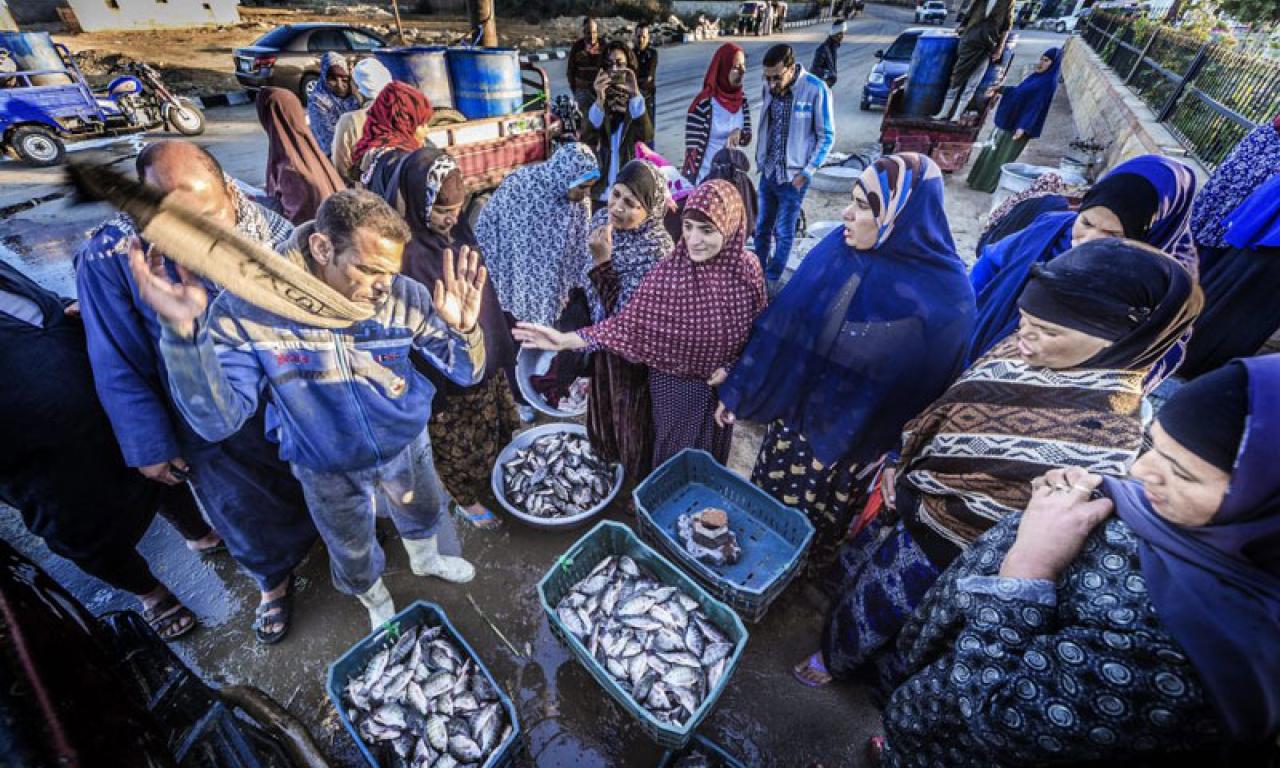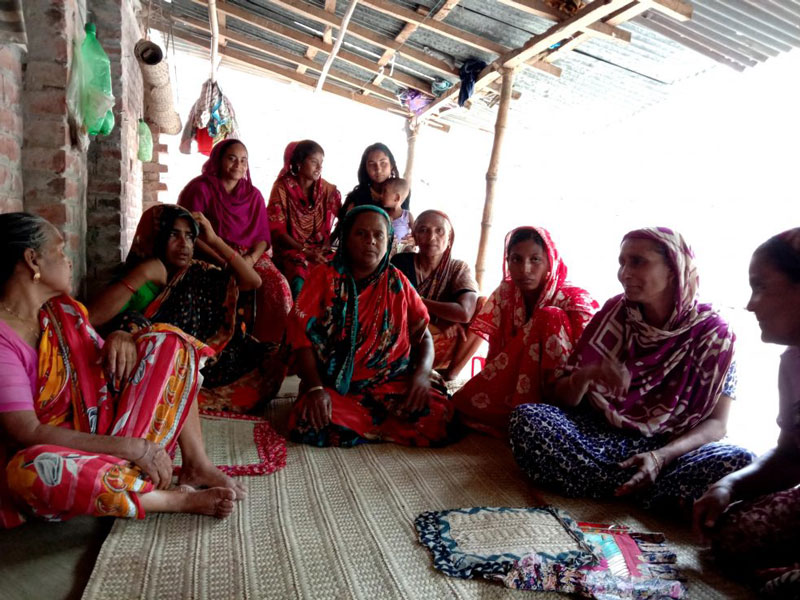
This blogpost highlights 2020 research outputs of the WorldFish gender theme as part of the CGIAR Research Program on Fish Agri-Food Systems (FISH). Here, we focus on research examining gender in aquaculture, in particular gender-based market constraints in Egypt, and barriers and opportunities for women’s empowerment in aquaculture in Bangladesh.
This blogpost highlights 2020 research outputs of the WorldFish gender theme as part of the CGIAR Research Program on Fish Agri-Food Systems (FISH). Here, we focus on research examining gender in aquaculture, in particular gender-based market constraints in Egypt, and barriers and opportunities for women’s empowerment in aquaculture in Bangladesh.
Gender barriers limit returns of women retailers in Egypt
In Egypt, the aquaculture sector is a major source of employment, generating 19 full-time equivalent jobs for every 100 tons of fish produced throughout the value chain. Within this, the highest rates of employment are in retail, where large numbers of women operate as informal and unlicensed retailers.
Despite the significant employment, few studies have explored the livelihood constraints of women and men in informal fish retail.
“This lack of evidence of gender-based constraints in fish retail could result in COVID-19 recovery programs for small-scale fishers and informal fish traders being gender-insensitive,” said Dr. Diksha Arora, a postdoctoral researcher at Colorado State University. “As a result, it could lead to the inadequate economic recovery of the fisheries sector from the COVID-19 economic crisis.”
Research published by WorldFish, Colorado State University, and Royal Tropical Institute (KIT) is helping to close this data gap. The study used sex-disaggregated data in three governorates of Lower Egypt, in Sharkhia, Kafr el-Sheikh and Beheira, to assess the economic and social constraints of fish retailers.
The study, Gender-based market constraints to informal fish retailing: Evidence from analysis of variance and linear regression, was published in PLOS One in March 2020.
“The findings show that women fish retailers in Egypt face greater economic barriers and generate smaller financial returns than do men retailers,” said Arora, a co-author on the SDC-funded research. “Notably, women’s disproportionate burden of unpaid care work impedes their ability to generate higher revenues.”
This evidence can help to inform the creation of gender-sensitive policies and programs, said co-author Froukje Kruijssen, senior advisor, KIT.
“The findings strengthen the case for further investment in understanding how gender norms and attitudes affect livelihood options and outcomes in aquaculture value chains and more broadly,” said Kruijssen.
“Further research is also needed to provide policymakers with actionable options to address gender barriers and further promote the development of Egypt’s aquaculture markets, without leaving women behind.”
A pathway for building women’s empowerment in aquaculture
In Bangladesh, where aquatic foods are highly consumed, the rapidly-growing aquaculture sector has the potential to improve the lives of all—by contributing to enhanced livelihoods, food security, and household nutrition.
Yet, constraining gender norms and stereotypes are prevalent, hindering women’s full involvement in and benefits from aquaculture.
“Cultural norms and belief systems around women’s abilities limit their full participation in aquaculture,” said Faridul Haque, a gender specialist with WorldFish’s Aquaculture: Increasing income, diversifying diets, and empowering women in Bangladesh and Nigeria (IDEA) project.
“Reputation related to societal ideals on masculinity and femininity further determine what men and women can and cannot do.”
A new scoping study, Rapid assessment on gender dynamics: Barriers, opportunities and risks in aquaculture and agriculture sector in northwest Bangladesh, shines a light on these issues and proposes several pathways for building women’s empowerment in aquaculture.
“Recommendations include supporting women entrepreneurs through accelerator programs and establishing women fish-farming groups (producer groups) that are registered with the government,” said Haque.
“Critically, gender-transformative approaches are needed to address the prevailing notions of masculinity and negative, gender-based stereotypes.”
Haque said this type of study has not been done for 10 to 15 years in northwest Bangladesh, underscoring its significance. Gender-transformative approaches help communities understand and challenge the social norms that create inequalities between men and women.
“This study has generated new knowledge in the field of gender and aquaculture by capturing the social, technological and changes of society, and identifying the gender roles, relations and notions of ideal manhood and womanhood,” he said.

The research was undertaken as part of the IDEA project (November 2018–January 2022) funded by the Bill & Melinda Gates Foundation and led by WorldFish.
“Alongside market development and increased supply of fish, the project aims to enable increased women’s decision-making power and control over resources, like income derived from fish farming and marketing,” explained Haque.
The scoping study contributes to the pool of knowledge on designing appropriate and informed interventions for women’s empowerment in the project in Bangladesh.
“The findings will also be used to design customized support services for women as local service providers (LSPs) and inform advocacy efforts,” he said.
“By focusing on women’s empowerment and inclusive businesses, the project can bring a change in women’s equitable involvement in and benefits from aquaculture.”
